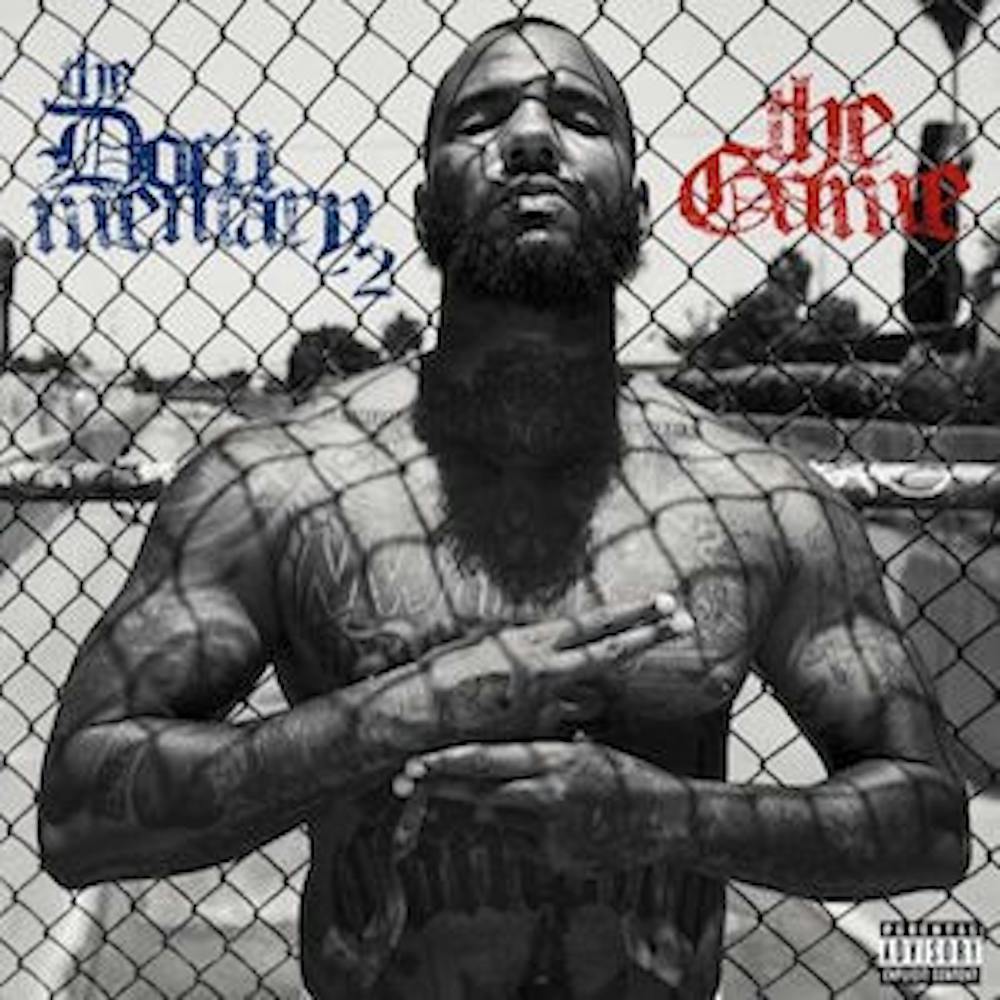The Game, a West Coast-based rapper and one of Dr. Dre’s proteges, released his much awaited album “The Documentary 2” earlier this month and “The Documentary 2.5” the next week. The two albums together boast nearly 40 songs and offer storytelling that surpasses his mentor’s “Compton.”
“The Documentary 2” offers insight into the life of a Compton-groomed man. Much like Dr. Dre’s “Compton,” the songs and interludes of “The Documentary 2” tell The Game’s story of Compton which proves to be much more difficult than that of his mentor. The intro of the album immediately take on a dark nature through nonchalance and elements of Compton crime. The album frequently references The Game’s presence and pride in the gang known as the Bloods and their feud with the enemy gang the Crips. The songs boast an old school hip-hop vibe in production values that are reminiscent of older artists such as Ice Cube, Snoop Dogg and of course, Dr. Dre — all of whom are featured on the album. “The Documentary 2” also hosts a great deal of new age artists with big names such as Kanye West, Drake, Kendrick Lamar and will.i.am.
The overall sound of “The Documentary 2” is excellent and catchy, offering insight into the mind of a stereotypical gang member. While “The Documentary 2” at first seems to lack a certain amount of lyrical depth (too explicit to print), in a majority of the songs there is a change in the musical style. The Game’s utilization of the two “discs” to supplement each other ends up working very well due to The Game’s mission of creating two-dimensional representations of himself. However, the consistent flatness of “The Documentary 2” causes the listener to think of The Game in a negative light. While this may already be the case because of the Game’s affiliation, the lyrics of the final four songs of “The Documentary 2” and nearly all the songs on “The Documentary 2.5” do offer a complexity to The Game and a further understanding of his relationship with gang life.
While “The Documentary 2.5” has a rather graphic lyrical scene in the “Sex Skit,” the album is much more lyrically sophisticated — albeit still highly profane — than “The Documentary 2.” At times the album even speaks about the systematic issue of racism against black males and the importance of being a good father. In terms of sound and lyrical depth, “The Documentary 2” and “The Documentary 2.5” are very different albums but to treat them as separate entities would be to diminish the power of both. “The Documentary 2” is an upbeat album that can be enjoyed by itself. By contrast, “The Documentary 2.5” illustrates a certain level of lyrical depth and musical production that also has merit as a standalone work. However, when listening to the two on after the other, it creates a cinematic experience through the musical telling of a Compton story.





